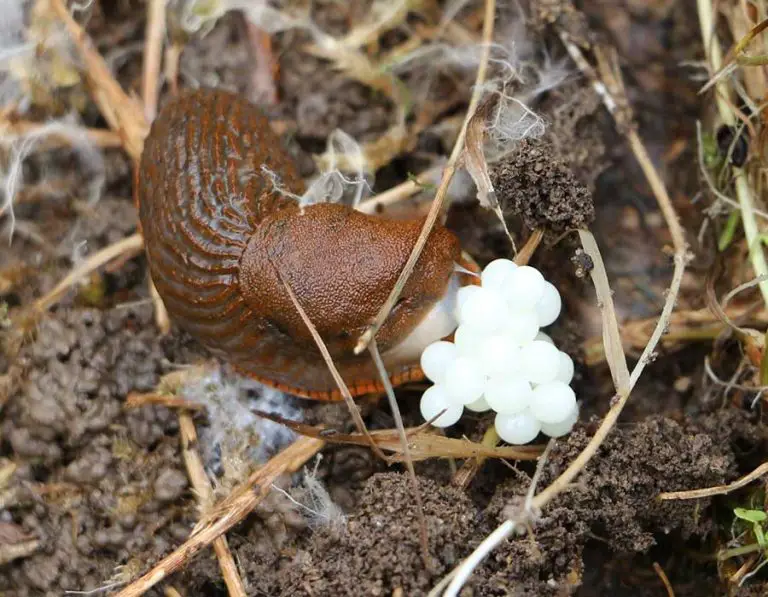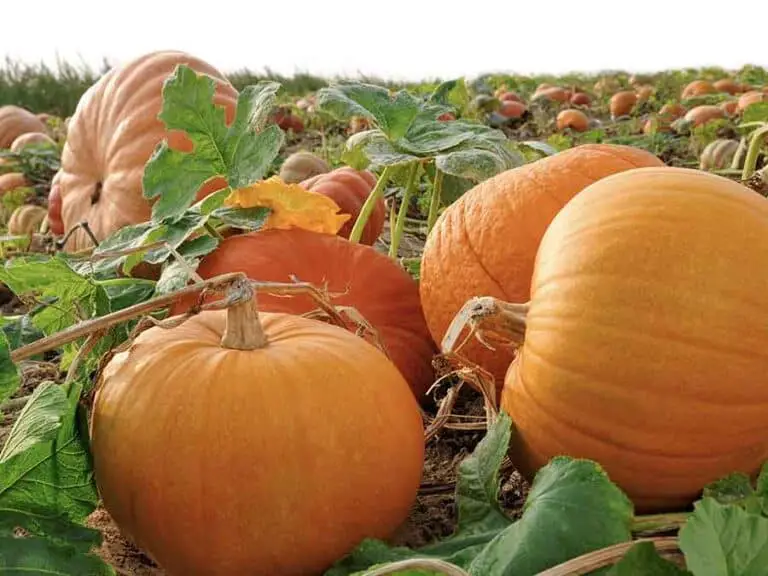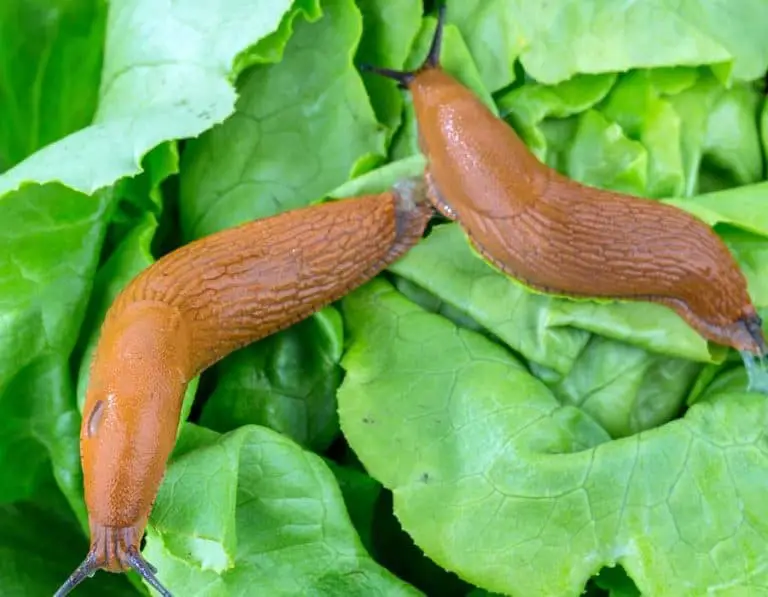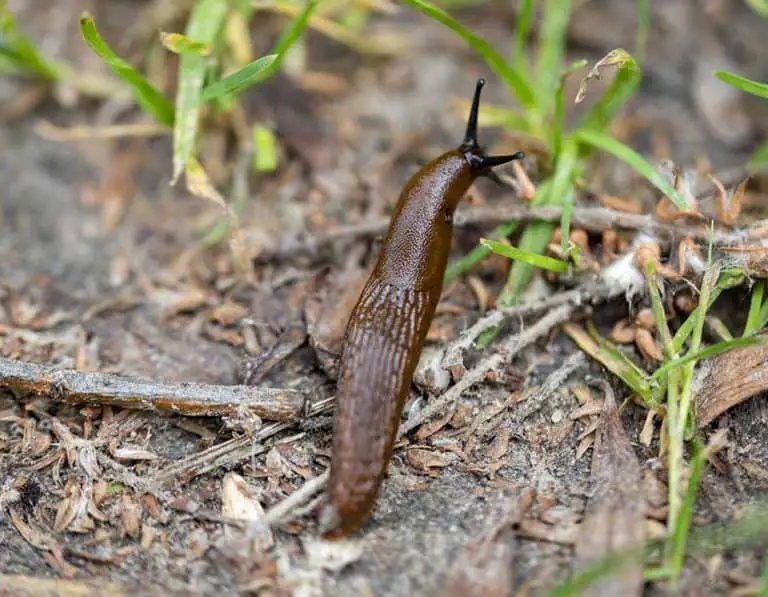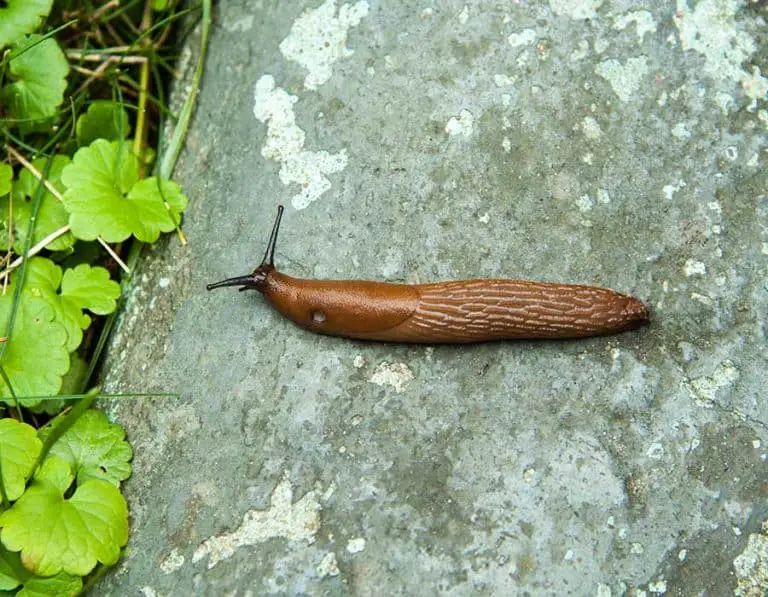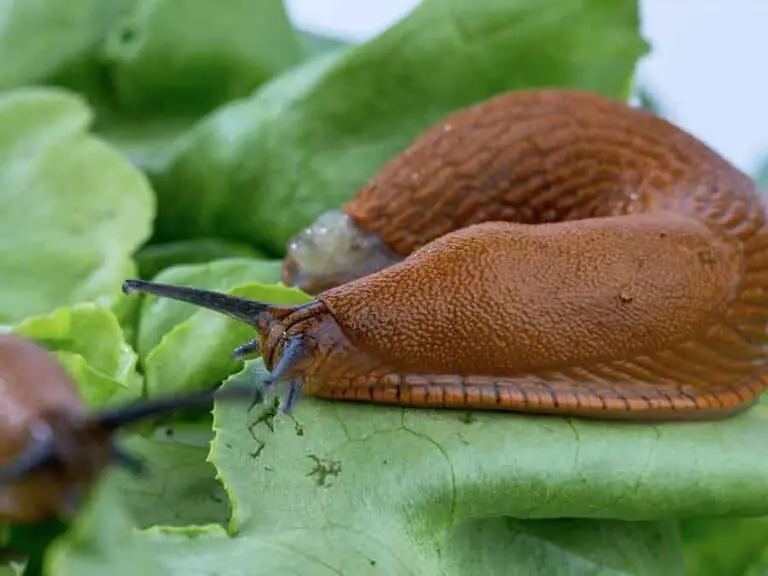Coffee Grounds for Slugs: Will it Deter Them?
Some gardeners say coffee grounds can deter slugs. Others say coffer grounds have no effect. Multiple tests show coffee grounds may be used against slugs and this is good news for those who don’t want to use chemicals to deter slugs.
Coffee grounds deter most slugs if sprinkled or sprayed around the garden. Mature slugs are less likely to be deterred by coffee grounds but they still prefer to stay away from it when possible. Coffee grounds do not kill slugs and should not be used in case of slug invasions.
Slugs might not be deterred by coffee grounds to the extent they are deterred by chemicals. However, they might avoid it similarly to plants they hate such as ferns.
Why do slugs hate coffee grounds?
The evidence of slugs hating coffee grounds is scarce and often conflicting. However, tests show more than half of slugs in a group move away from coffee grounds while only a few try to move over it in real-world conditions.
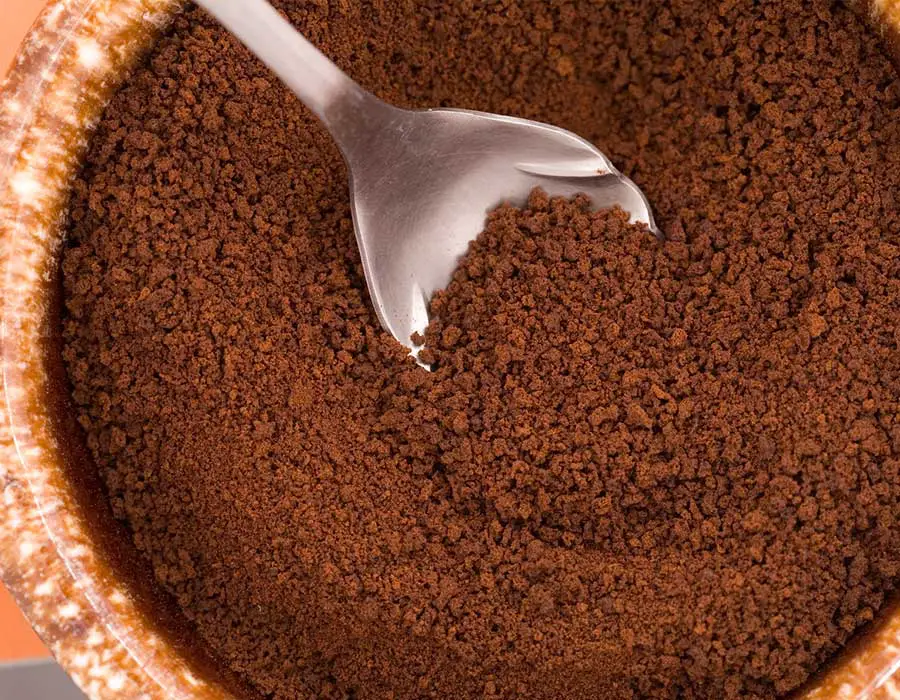
There are many theories as to why most slugs are deterred by coffee grounds. Most of these theories fall into one of the following categories,
A dry surface to move on
Slugs prefer high moisture and damp soil. They struggle to move on dry soil and they might even prefer not to come out on the hottest sunny days preferring to only come out after it rains.
Slugs use mucus their body produces to enhance moving on dry surfaces. This mucus is finite and slugs need water to replenish it. Coffee grounds are known to be dry and to dry quicker than soil or compost.
A deterring smell
Coffee grounds still smell of coffee, just like coffee beans. Some people believe it’s the actual smell of coffee that slugs hate.
The smell of coffee grounds weakens over time. It should even go away after a few days or a few weeks in the garden. However, the lingering coffee smell might be enough to deter a small percentage of slugs.
Caffeine
Caffeine itself has sometimes been quoted to be the main reason slugs hate coffee. The caffeine content in coffee grounds has a positive role in the garden. Coffee grounds are often used as fertilizer so adding it to the garden might only come with benefits.
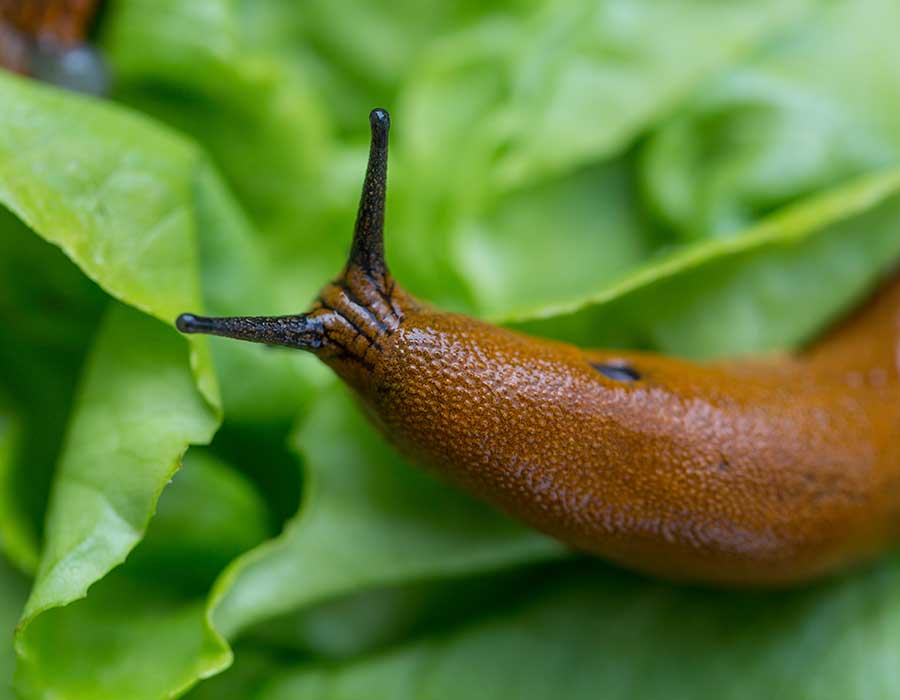
How to use coffee against slugs
You can use different coffee grounds application methods if you want to test this deterring solution against slugs in your garden. Pure solid sprinkled coffee grounds are the main solution but some gardeners prefer to mix coffee grounds with water to make sprays. An easier method simply involves sprinkling coffee grounds in the garden.
- Collect coffee grounds from multiple coffees
- Allow coffee grounds to dry
- Sprinkle coffee grounds on the soil where you’ve seen slugs before (slugs always re-appear in the same area)
- Sprinkle more coffee grounds after the rain
Do caffeine sprays work against slugs?
Caffeine sprays from coffee grounds are sometimes used against slugs. These sprays only work for young slugs (most slugs can live up to 6 years) as a deterrent. It doesn’t deter all slugs and it typically gets washed away after the first rain. The advantage of coffee ground sprays is that the mix can be sprayed directly on vegetables while dry coffee grounds may only be sprinkled on the soil.
Why coffee grounds may not work against slugs?
Coffee grounds are a natural ingredient rarely used as a pest repellent. While this preventive method works, it has its limits at times. As a result, you should have realistic expectations of the results coffee grounds can have. Here are its main limitations.
Not all slugs avoid coffee grounds
The biggest reason not to count exclusively on coffee grounds against slugs is that not all slugs are repelled by it. Numerous tests show coffee grounds do not repel all slugs. Some of the more mature experienced slugs can move across coffee grounds without problems. Even large amounts of coffee grounds cannot deter all slugs.
Coffee grounds get washed away by rain
Another limiting reason for coffee grounds to be used against slugs is rain itself. Rain washes coffee grounds away. It takes them into the ground and eventually turns them into fertilizer. In turn, the fertilizer helps vegetables in the garden grow faster and more vigorously. New fresh vegetables attract slugs.
How often should I use coffee against slugs?
Application frequency might be the most important variable if you decide to use a trial and error method to see if coffee grounds deter slugs in your garden.
Most people apply coffee grounds once per gardening season and then wait for slugs to disappear. Gardeners who constantly use coffee grounds against slugs and snails apply it multiple times per gardening season.
You can apply coffee grounds 3-4 times per month or after every heavy rain in the garden. This reduces the chances of coffee grounds being washed away.
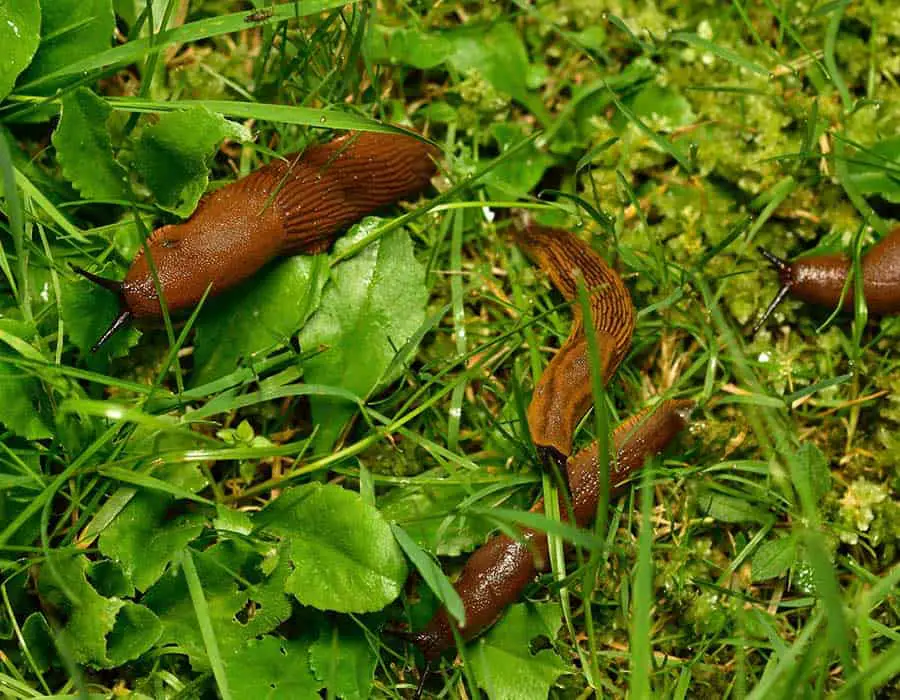
Dry coffee grounds vs wet coffee grounds against slugs: which is better?
The issue of moisture in coffee grounds is also divisive in the gardening community. Some people only sprinkle dry coffee grounds while others lay layers of wet coffee grounds on the soil.
Dry coffee grounds
Dry coffee grounds have the advantage of being easy to sprinkle on vegetables. You can wash dry coffee grounds before consuming the vegetables. Dry coffee grounds are also spread through the garden by the wind.
Wet coffee grounds
Some gardeners apply wet coffee grounds soon after making a cup of coffee daily. The wet coffee ground eventually becomes dry coffee grounds and laying layers of wet fresh coffee grounds can have similar benefits to sprinkling dry coffee grounds in the garden.
Coffee grounds are even avoided completely by some gardeners are certain types of coffee can acidify the soil. You need to test out various methods of coffee grounds application and frequency to see if the coffee you drink can deter slugs in your garden. It might be a process of trial and error until you find the right amount of coffee ground that keeps at least some slugs away.

